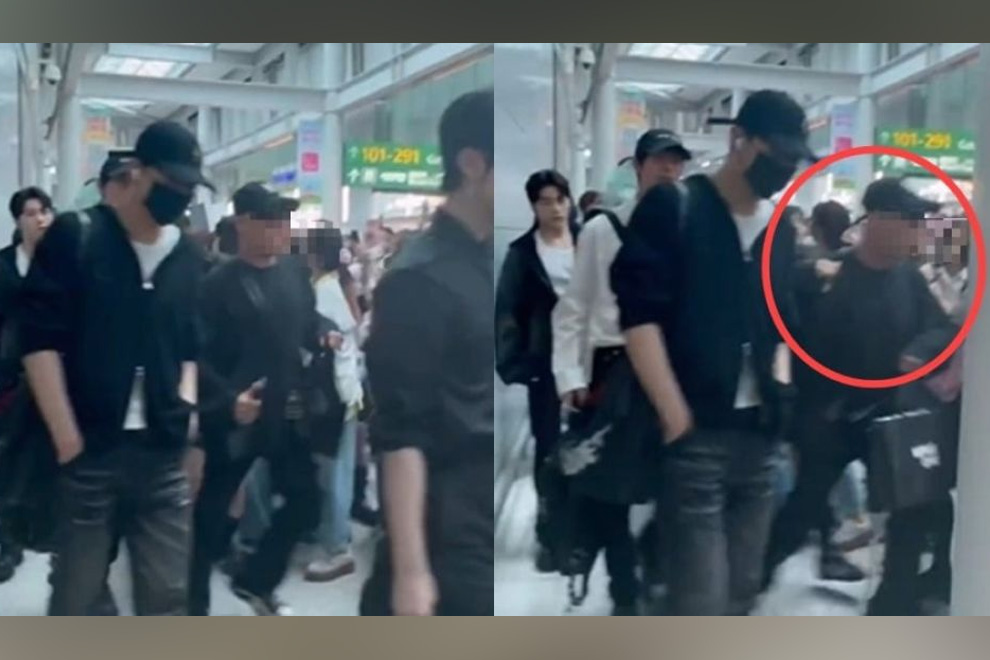### Necessary or Excessive?: K-pop Security at Airports Sparks Debate
In recent years, the explosive rise of K-pop has captivated not only millions of fans worldwide but also ignited discussions over various aspects of the industry's impact. One particularly contentious topic is the security measures employed at airports for K-pop idols. While some argue that the heightened security is essential for ensuring the safety of these stars, others contend that it often veers into excessive territory, raising questions about privacy and the overall fan experience.
#### The Case for Increased Security
Proponents of stringent airport security for K-pop idols emphasize the unique challenges that arise from their immense popularity. Fan enthusiasm can quickly escalate into chaotic situations, with crowds surging unexpectedly to catch a glimpse of their favorite artists. Incidents of overzealous fans leading to dangerous encounters have been documented, prompting authorities to take precautions to protect both the idols and other travelers.
Moreover, in an era where celebrity culture often intersects with threats ranging from obsessive fandom to potential violence, enhanced security serves as a necessary deterrent. It ensures that idols can travel safely without the looming dread of unpredictable fan behavior or media scrutiny. For many, K-pop idols represent significant cultural icons, and safeguarding their well-being becomes paramount for maintaining the integrity of the industry.
#### The Argument Against Excessive Measures
On the flip side, critics argue that the level of security typically observed at airports is often excessive and can detract from the overall experience of traveling for both fans and artists alike. Long lines, delays, and an atmosphere of tension can create an unwelcoming environment, making it difficult for idols to engage meaningfully with their supporters.
Additionally, the intrusive nature of some security protocols raises concerns about personal privacy. Many fans believe that while safety is important, there should be a balance that allows for organic interactions between idols and their followers. Fans often cherish moments of connection, however fleeting, and excessive security measures can strip away the intimacy that defines the K-pop experience.
#### Striking a Balance
Ultimately, the debate surrounding K-pop security at airports highlights the need for a nuanced approach that considers both safety and fan engagement. Event organizers, management teams, and airport authorities must work together to design security protocols that prioritize the safety of idols without completely alienating their fan base. This might include controlled crowd management strategies, designated areas for fans to gather, or even scheduled meet-and-greet opportunities, allowing for a more structured yet personal interaction.
In conclusion, while the necessity of security for K-pop idols at airports cannot be denied, the conversation surrounding its implementation must continue. By striving for solutions that embrace both safety and accessibility, the K-pop industry can foster a healthier relationship between artists and their devoted supporters, ensuring that everyone involved feels secure, respected, and connected.
**Title: The Fine Line: Security Measures and Celebrity Safety at South Korean Airports**
In bustling South Korea, particularly at airports, the sight of bodyguards clad in black security vests has become an everyday occurrence. These guards aren't merely there for show; they play a critical role in managing the often overwhelming crowds of fans eager to catch a glimpse of their favorite K-pop idols. However, recent events have brought to light the ongoing debate surrounding the use of excessive force by security personnel.
A video that recently circulated on social media platform X showed the manager of the K-pop boy group Zerobaseone engaged in what many perceived as an aggressive push against fans. As the footage unfolded, viewers could hear the manager shouting, “Move out of the way,” followed by a loud thud that left many questioning whether a fan had been pushed or if the camera had been struck. This incident ignited a wider conversation about the balance between ensuring celebrity safety and respecting fan interactions.
While some argue that the intensity of security measures can come off as excessive, industry insiders assert that the need for such protection is paramount. An official from a South Korean entertainment company, who chose to remain anonymous, highlighted that “there is no strict rule requiring idols to have security at airports, but it is typically arranged for safety reasons.” With crowds often spiraling out of control, particularly in countries where idol culture is fervent, the presence of bodyguards becomes indispensable.
The discussion raises important questions about the nature of celebrity culture and fan behavior. While the passion of fans is undeniable, it can sometimes blur the lines of personal space and safety, leading to situations that necessitate stringent security measures. It is crucial for both fans and members of the entertainment industry to find a way to coexist peacefully, ensuring that admiration does not turn into chaos.
As South Korea continues to be a hub for global K-pop phenomena, the ongoing evolution of security protocols at airports will be closely scrutinized. Striking the right balance between safety and respect is vital not only for the well-being of the idols but also for fostering a positive environment for fans. The challenge lies not just in managing large crowds, but in cultivating a culture of mutual respect and understanding amid the excitement of celebrity encounters.

Comments
Post a Comment